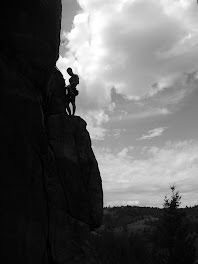Using Mobile/handheld devices for learning:
The focus of this entry into my blog is on eTech Group's June 2009 report on Global Mobile Learning, IPod Touch and Studywiz Learning Environment. I happen to own the handheld Ipod Touch, if you are not familiar with this device I suggest you go here http://www.apple.com/ to find more information. Understanding the use of the mobile device and its application to learning is essential. According to research conducted by the Pew Research and American Life Project the use of handheld devices will be the primary way to connect to the Internet by 2020. Using mobile devices to access the Internet via mobile cell phone access is seen as more possible instead of the use of computers via broadband connections. It is estimated that approximately 4.6 billion cell phones are currently in use. Contrary to this report Brandon Hall Research reports that "by the end of 2009...2.6 billion mobile phones will be in use. That works out to 41 percent of the global population carrying mobile phones by the end of 2009," (retrieved from http://www.brandon-hall.com/publications/mobilelearning/mobilelearning-comesofage.shtml August 2009).
The ubiquity of mobile devices is changing the way we learn as well. The eTech Group's is a presentation of the application of handheld devices for lean ring. This study addressed several things including studying the potential of handheld devices such as the Ipod for learning. In this study the learning management system or learning environment, Studywiz was used. Information on Studywiz can be found here, this study was my introduction to Studywiz and this is something I will have to explore further. Two school were included in the study, the study was at the elementary grade level.
This study sought to answer several questions, two primary ones are:
How can a mobile device (such as the Ipod Touch) improve our student's understanding of themselves in a global context.
And...
What impact does movie learning and multicultural text have on student achievement and cultural appreciation.
Several activities were designed for the students to apply in using their handheld devices:
Putting Google links and projects in a blog
Browsing the Internet for research
Synching tunes with Itunes
interviews with local media
Calendar settings
Using video with the Ipod
Discussions in English
Using Studywiz Learning Environment
Quizzes
Audible for Audio Books
Numeracy Web Applications
Dictionary.com
Whiteboard
Students also created their own podcasts.
The Ipod was also used for:
Sending attendance logs by faculty to administration
Immediate communication from one teacher to another
Pushing emails in Studywiz environment
Encourage parents to log-in to Studywiz Learning Environment to read messages and blogs from teachers
Details on Studywiz:
After the class the students indicate increased confidence in:
Word Processing
Studywiz learning environment
Presentation software and Internet
Main activities included:
Researching school assignments
Blogs, wikis, chts
Downloading music and videos
Social Video sites
Increased the use and range of techniques
Increased the use of Internet research
Blogging downloading audio and videos and podcasts
The students agreed, when giving their feedback that the use of technology was important in improving their lives. Some of the challenges that the teachers found in applying the new technology was the need for time in using the technology and changing their pedagogy from that of a teacher centered focus to a learner centered focus.
There are many resources on the use of Mobile Learning/handheld devices for learning on the internet. I suggest you get out your Blackberry,I Phone, Ipod touch and search them out!
The full report can be found here: http://louiseduncan.globalteacher.org.au/files/2009/08/Mobile-Learning-Research-Report_Etech2009_Final.pdf
Steampunk Adventures back from a real life interruption!
-
Hello everyone, I can’t believe that I have not posted anything here since
June of 2011! So much has happened in the past several months..real life
has ce...
14 years ago


